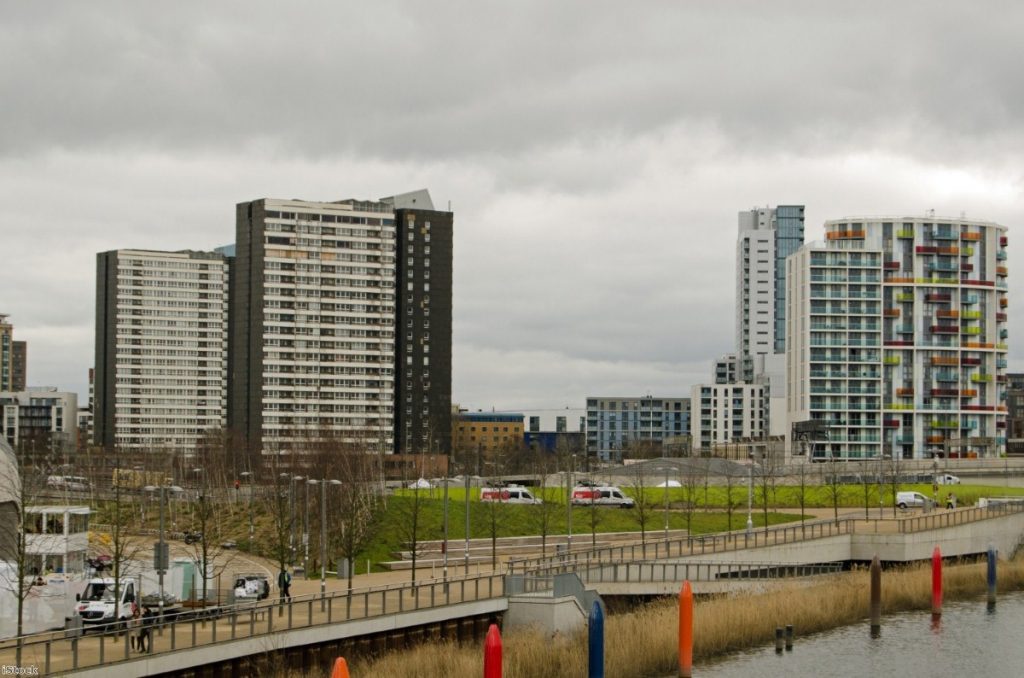By Sian Norris
The Great Property Giveaway is the latest addition to Channel 4's raft of property shows – with a difference. Rather than Kirsty and Phil or Amanda Lamb showing well-heeled couples around luxury cottages, property developer Marco Robinson invites families affected by the housing crisis to tell him why they should be given a three-bedroomed house.
It sounds like the premise of an episode for Charlie Brooker's Black Mirror – families baring their souls, fears and traumas to then be rewarded with a home. In their press release, Channel 4 has labelled The Great Property Giveaway as a chance to "meet some of the families who have been most affected by the housing crisis […] [and] transform their lives forever."
According to housing charity Shelter, every day in Britain 150 families become homeless. The number of homeless households in England has risen to more than 50,000 a year, and more than 2,000 people a year are sleeping rough. With homelessness rising, the need for affordable social housing is growing – but today in England more than 1.5 million households are waiting for a home. That’s an 81% increase in the last 20 years.


With The Great Property Giveaway, one of those 1.5 million households will now be given a home – but only once they prove to Marco Robinson why they deserve it.
My show Get A House For Free debuts Tuesday at 9PM on @Channel4!
Please RT this video to show your support! ?? #UK #Europe #RealEstate pic.twitter.com/ceGofATRwi
— Marco Robinson (@marcorobinson7) August 3, 2017
The programme not only makes entertainment out of one of the worst social crises the UK has seen. It normalises the idea of the 'deserving and undeserving poor' – a concept which suggests some families living in poverty should be offered help while the rest can lump it.
The stigmatisation of poverty and the notion of the deserving versus undeserving poor has become more and more prevalent over the last seven years of austerity. Helped by former chancellor George Osborne's depictions of "shirkers versus strivers" and Nick Clegg's "alarm clock Britain", we have divided people living in poverty into those who are worthy of help, and those who are presumed to have brought poverty on themselves and therefore shouldn't receive support. This rhetoric has been used to justify devastating welfare cuts – including caps on in-work benefits and cuts to disability support – which in turn have led to a rise in food bank use, homelessness, and child poverty.
For a glimpse into the impact of the deserving/undeserving rhetoric in action, look at the Grenfell Tower horror. The images of the burnt out building has brought into stark relief the terrible human cost of failing housing policy. But it didn't take long before the response to the tragedy demonstrated how far from compassion society has moved when it comes to helping Britain's most vulnerable.
Robinson grew up in poverty but "through hard work" he developed a portfolio of properties around the world. There is no doubt that his heart is in the right place. But his show simply makes more acceptable the idea that there are poor people who deserve poverty, and those who deserve help. The entire premise of the show involves pitching some of the poorest and most vulnerable people in the UK against one another, to prove who most "deserves" a basic human right many of us take for granted.
Programmes like this are a neoliberal dream. They promote the idea that it is not the state's responsibility to care for its neediest and most vulnerable. Instead, the job of distributing welfare and ending poverty moves from government to the individual. The show represents an ideological standpoint that says we should shrink the state in favour of personal charity to the "deserving" poor, while the poor should themselves take action to get out of poverty. In this case, that action is to go on TV. It's Thatcher's "no such thing as society" in HD with surround sound.
But personal charity that prioritises those we consider 'deserving' of help cannot be and never will be a solution to poverty and the housing crisis.
Of course, no one is suggesting that The Great Property Giveaway is replacing policy. It is just a TV show. But it represents a worrying trend at this moment of crisis that we should be challenging, not embracing. Its demand that poor people prove why they need a home embeds the idea that only some people are deserving of help, while others must remain without. And by perpetuating the idea that poverty is a matter of personal altruism and responsibility lets the government off the hook.
Sian Norris is a writer and feminist activist. Follow her on Twitter here.
The opinions in politics.co.uk's Comment and Analysis section are those of the author and are no reflection of the views of the website or its owners.










